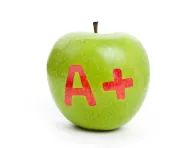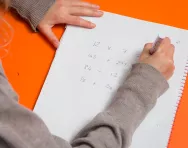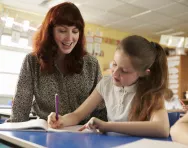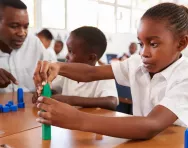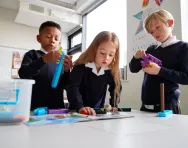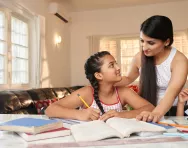Important update from TheSchoolRun
For the past 13 years, TheSchoolRun has been run by a small team of mums working from home, dedicated to providing quality educational resources to primary school parents. Unfortunately, rising supplier costs and falling revenue have made it impossible for us to continue operating, and we’ve had to make the difficult decision to close. The good news: We’ve arranged for another educational provider to take over many of our resources. These will be hosted on a new portal, where the content will be updated and expanded to support your child’s learning.
What this means for subscribers:
- Your subscription is still active, and for now, you can keep using the website as normal — just log in with your usual details to access all our articles and resources*.
- In a few months, all resources will move to the new portal. You’ll continue to have access there until your subscription ends. We’ll send you full details nearer the time.
- As a thank you for your support, we’ll also be sending you 16 primary school eBooks (worth £108.84) to download and keep.
A few changes to be aware of:
- The Learning Journey weekly email has ended, but your child’s plan will still be updated on your dashboard each Monday. Just log in to see the recommended worksheets.
- The 11+ weekly emails have now ended. We sent you all the remaining emails in the series at the end of March — please check your inbox (and spam folder) if you haven’t seen them. You can also follow the full programme here: 11+ Learning Journey.
If you have any questions, please contact us at [email protected]. Thank you for being part of our journey it’s been a privilege to support your family’s learning.
*If you need to reset your password, it will still work as usual. Please check your spam folder if the reset email doesn’t appear in your inbox.
The parents’ guide to primary school reports

School reports vary hugely in their style, content and level of detail. Some information is statutory, but schools have a lot of freedom in terms of what else they include.
We asked three primary school teachers to explain what you need to know about reading and responding to your child’s end-of-year report.
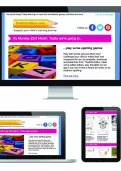
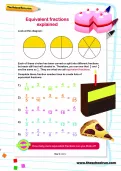
Boost your child's maths & English skills!
- Follow a weekly programme
- Maths & English resources
- Keeps your child's learning on track
What’s the point of end-of-year reports?
Your child’s school report is a snapshot of their learning, attainment and attitude over the course of the school year.
‘The overall purpose should be a formal record of what your child has achieved in the year: their academic achievement, and how they are getting on overall,’ says deputy head Roz Maslin. ‘They often talk about the child’s attitude to learning, their social skills, and information about interventions or clubs they’ve been involved in.’
Reports also look ahead to the future. ‘They indicate any areas that require attention, and may set targets for the following year,’ says teacher and tutor Joanna Craigie.
What should they contain?
The Department for Education says that school reports for Key Stages 1 and 2 must cover:
- General progress
- A brief overview of achievements, highlighting strengths and developmental needs
- Information about how to arrange a discussion about the report with your child’s school
- Your child’s attendance record
- The results of any National Curriculum assessments, such as SATs
How much detail can you expect?
Beyond the statutory content, the style and depth of the report varies between schools.
‘In my school, we give a measure of how the child is performing against the expected standard for that school year for each subject,’ says Year 6 teacher Claire Shearer. ‘We then give a teacher comment for each of the core subjects, and a personal comment for the child, focusing on things that aren’t subject-based, such as their attitude, behaviour and creativity.’
Some schools provide less detail than this – they may not have comments for individual subjects, for example, and just have an overall comment summarising the child’s school year.
Others go into more depth. For example, it’s becoming increasingly common for children to write their own comments, talking about what they’ve enjoyed learning about, what they feel they’ve succeeded in, and what has challenged them.
In some schools, teachers write a comment for every subject, and often, the head teacher will provide a sentence or two as well (this is more likely in smaller schools). Some reports focus on the topics that children have learned about, as well as subjects.
‘It’s up to schools to decide what to include, and that’s often determined by what sort of format and content the school has previously used, what parents are used to, and what they want,’ explains Roz.
Will you get given grades?
If your child has taken mandatory assessments during the school year, such as Year 2 SATs, Year 6 SATs or the Year 1 phonics screening check, their school report should include their results.
There will often be some other sort of subject-by-subject grading, but don’t expect to be given an ABC or numerical grade. Most schools use some form of the following primary school grading system:
- Working towards the expected standard
- Working at the expected standard
- Working above the expected standard/working at greater depth
Alternatively, you may see something like this:
- Emerging (working towards the expected standard)
- Developing (getting close to the expected standard)
- Secure (working at the expected standard with a secure grasp of the subject)
- Mastery (working above the expected standard in all areas of the subject)
‘Parents can see how their child is getting on compared to the “expected” standard for the year group,’ Claire adds.
Can teachers copy and paste comments between children?
Although every child should have an individually written report, sometimes parents feel that comments have been copied and pasted from one report to another.
It can feel frustrating if your child’s report doesn’t appear to be sufficiently personalised, but it’s important to remember that report-writing is a mammoth task for primary school teachers, and as a result, they may take small shortcuts to make it more manageable.
‘If a teacher has 30 children in their class and each report takes a minimum 20 minutes to write, that’s 10 hours of writing,’ explains Roz.
‘Each report then has to be checked by a member of the senior leadership team, and after that, the teacher has to make any requested changes. I would much rather teachers focus on planning and teaching, rather than spending hours writing lengthy reports that may not actually be that meaningful or useful to parents.’
Reports shouldn’t, however, be straight copy and paste jobs. ‘Although similar areas will be commented on across reports, teachers do take time to personalise their comments for each child,’ says Claire.
‘Some schools use report-writing programmes with generic statements,’ adds former teacher and tutor Joanna Craigie. These programmes may lead to reports sounding formulaic, but are designed to allow teachers to write reports more efficiently so they can concentrate on their core teaching duties.
Why are there sometimes mistakes in school reports?
As well as being under huge pressure, teachers are also human, so try not to focus on the occasional typo or grammatical mistake.
Some schools acknowledge the huge time pressure and allow teachers to use staff meeting time or an INSET day to write reports, but usually they have to write them in their own time, typically in the evenings when they’re tired from a day of teaching, marking and lesson prep.
‘Whilst your teacher has no doubt proofread every report, after writing and checking 30 reports, you do become a little word blind!’ says Claire.
Joanna agrees. ‘My headteacher would check every child’s report, and still mistakes would get through,’ she says.
Should you share the report with your child?
Many schools address end-of-year reports to the child themselves: you may read comments such as, ‘Katie, you have worked really hard on using commas and full stops this year. Next year, I would like you to try to use a wider range of punctuation.’
This is an important part of making children feel empowered in their own learning, and actively engaged in their next steps and targets.
‘I think it’s brilliant to share reports with your child, and I often write some of the comments addressed directly to them,’ says Claire. ‘Teachers will always try to be positive in reports, so it’s a good confidence boost for children to hear what they have done well in, and if your child is struggling with something, the report will help them identify what they can do to improve.’
Roz advises parents to share reports with their children as long as they’re happy with the content, and are able to discuss it in an age-appropriate way. ‘In this high-pressure age, this can be challenging, as children can get upset if they feel they are not doing as well as others, but I fundamentally believe they should be fully involved in their learning and achievement,’ she says.
What if you read something unexpected?
School reports shouldn’t contain any major surprises. Any significant issues should have been raised in your parent-teacher consultation, or by the teacher speaking to you directly, so it’s unlikely that they’ll drop a bombshell about your child’s attainment or behaviour.
‘We always try to make sure any issues are discussed face to face with parents and not heard for the first time in a report,’ agrees Claire. ‘We hand out reports with a couple of weeks left in the term and encourage parents to meet with us if there is anything they want to discuss.’
It’s mandatory for your child’s report to specify how you should contact the school if you want to raise any concerns about the content of their report, so you should go through this channel first.
‘Speak to the school straight away, without delay,’ Roz advises. ‘Schools are busy places and miscommunication can happen. If you don’t raise the issue, your child’s teacher won’t know there’s a problem.’
Should you give the teacher feedback?
Many schools like parents and carers to acknowledge receipt of their report, often just by signing a slip. Some also invite feedback, whether by filling in a form or emailing the school.
There are two types of feedback – feedback on what the teacher has written about your child, and feedback on the style and format of the report itself.
‘I think we should be trying to make reports as useful as possible for parents, and as easy as possible for schools to produce, so teachers can focus on children’s learning, not on paperwork,’ says Roz.
‘So for me, the feedback should be about how useful the reports are, how reader-friendly they are (as teachers, we can end up writing all sorts of education-speak that means nothing to many parents), what else parents would like us to include, and anything they wouldn’t mind leaving out.’
Claire affirms Roz’s views. ‘We always encourage feedback from parents in all areas of school life,’ she explains. ‘It’s helpful to receive feedback on how well explained and easy to understand the reports are, and positive recognition and feedback that the report has been helpful to you.’
Any gratitude and encouragement you can offer your child’s teacher will also be received gladly – at the end of a long and exhausting school year, a simple ‘thank you’ goes a very long way.
With thanks to the Ask A Teacher Facebook group.
